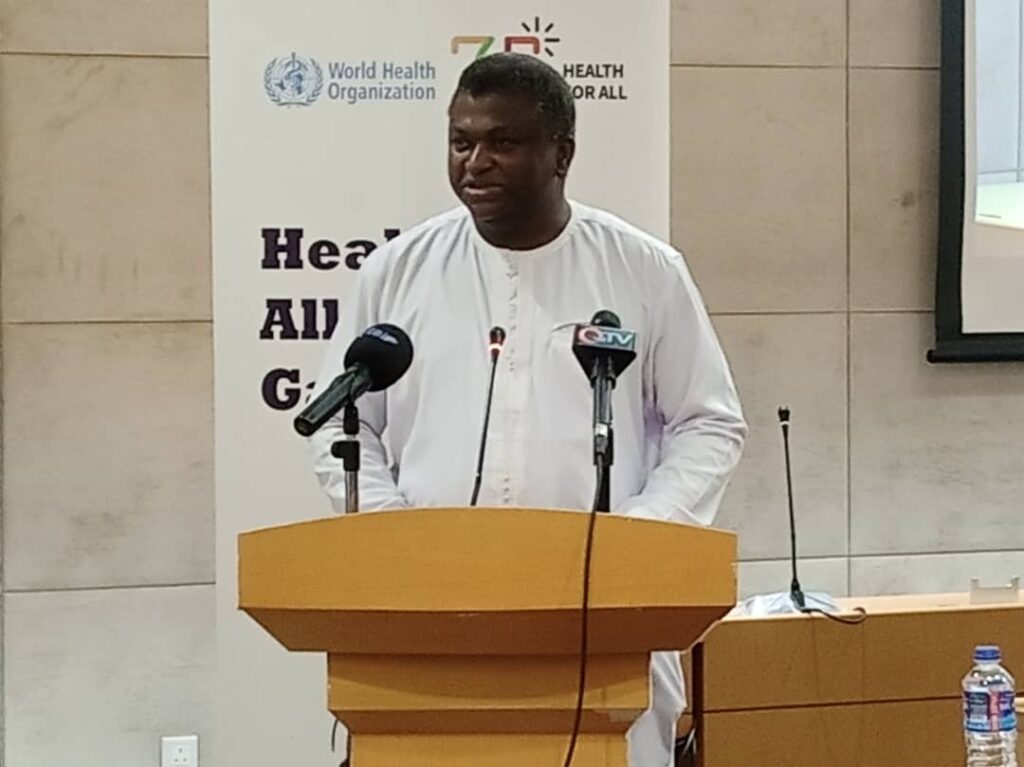Health Minister Discloses Surge in Cancer Cases In Gambia, Particularly Cervical And Breast Cancers

By Landing Ceesay
The Minister of Health, Dr. Ahamadou Lamin Samateh has shed light on the escalating rates of cervical, breast, and liver cancers in developing nations, including the Gambia.
Dr. Samateh addressed the concerning trend, stating, “Cancer has been a big public health challenge for many countries. We have seen increasing incidents in many developing countries. That brings about the double-boarding of the disease. Developing countries were battling initially with communicable diseases and infections of various types. But the trend is changing in the sense that we are seeing quite a lot of non-communicable diseases now.
“That doesn’t mean that the communicable diseases disappeared. We still have them, and we are now shattered with a double-boarding of both communicable and non-communicable diseases. We have seen cancer incidents on the rise in many of our developing countries. Gambia is not left behind,” Dr. Samateh said.
Speaking at the validation event for the draft Integrated Mission for Programme of Action for Cancer Therapy (IMPACT) Report and the National Cancer Control Strategy, Dr. Samateh emphasized the collaborative effort between the National Cancer Control Programme, the International Atomic Energy Agency (IAEA), the World Health Organization (WHO), and other partners in addressing cancer in the Gambia.
Experts from various countries, including South Africa, Ghana, Nigeria, and Kenya, were invited to contribute to the validation process.
Dr. Samateh highlighted the increasing incidence of cervical, breast, and liver cancers in Gambian women, with hepatitis B prevalence exacerbating the risk of liver cancer. Notably, breast cancer cases are often detected at advanced stages.
“We have seen that cervical cancer, being the commonest cancer in women, is on the rise. Liver cancer as well is on the rise, and breast cancer is also on the rise in women. We have also known that in the Gambia, hepatitis B self-prevalence is high, which also tends to predispose patients and people to the development of liver cancer. Liver Cancer has been the most common cancer in women, in fact, being the second most common in women and, in fact, the second commonest in women and the commonest in men in the country. Liver cancer is very important,” Dr. Samateh said.
Acknowledging President Barrow’s directive to address the cancer prevalence, Dr. Samateh outlined measures taken, including the establishment of a dedicated National Cancer Control Programme separate from the Non-Communicable Disease Unit.
“It started by divorcing the cancer unit from the non-communicable diseases unit. In fact, cancer activities are quite elementary in this country. Because the non-communicable diseases unit did not have cancer care as the primary focus. The focus was mainly on other non-communicable diseases like hypertension and diabetes, and, of course, a lot of focus was placed on Tobacco Control where Gambia is excelling. But that means cancer care was relegated to the background.” he said
Expressing confidence in the country’s young medical professionals, Dr. Samateh affirmed the government’s threefold strategy: expanding healthcare access, upgrading infrastructure, and enhancing human resources.
“The cancer control program was set up, a few years ago. But as you can all attest to the fact that it was not a mistake and happy that the previous speakers that is one of the greatest milestones in the control of cancer in this country. We thank the team; the performance of this team is a great manifestation of the hope we have in this country with regard to our young, dynamic, patriotic, hardworking citizens,
“The government strategy in dealing with healthcare issues in this country is threefold. One to increase access, improve health infrastructure, renovating the old ones, building new ones so that people have access to health care services. Secondly, to ensure that the relevant equipment and supplies are available at high quality.
“And thirdly, to build human capacity, the people who need to ensure that the people of this country get the care they deserve. We are taking very bold steps, and this is one of the manifestations of that. Health care provision is not cheap; Gambia is a low-income country. We do not have all the capacities, especially to deal with diseases like cancer. International collaboration, and local collaboration are very important,” Dr. Samateh said.
This strategic plan serves as a comprehensive guide for cancer control and prevention in the Gambia, adopting a multi-faceted approach encompassing prevention, early detection, diagnosis, treatment, and palliative care.

